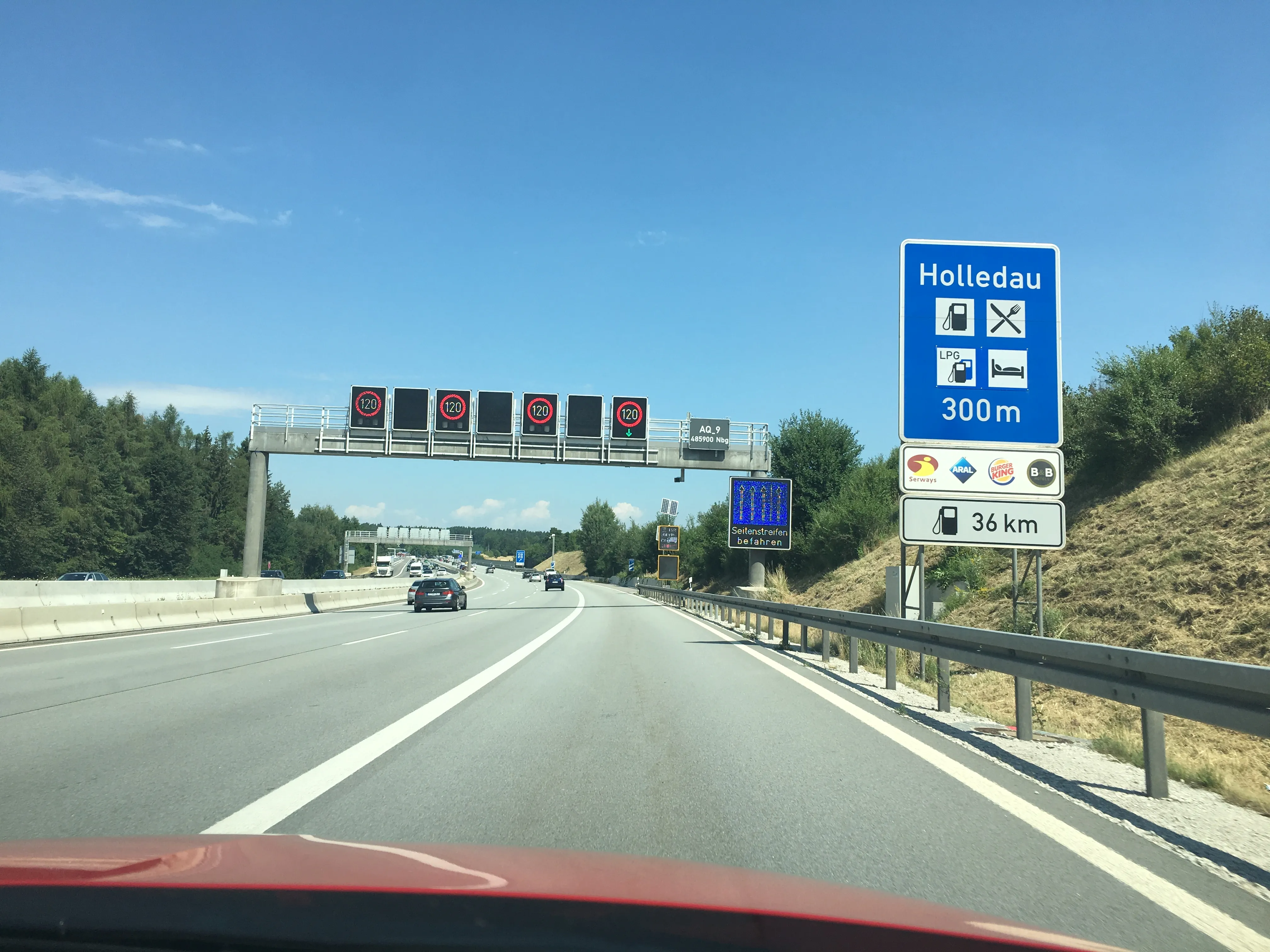The European Commission has tabled a plan which will fund €50 billion (US$68.7 billion) worth of investment to improve Europe's transport, energy and digital networks. It has also announced the Europe 2020 Project Bond Initiative which will be one of a number of risk-sharing instruments upon which the facility may draw in order to attract private finance in projects.
May 2, 2012
Read time: 4 mins
The 2465 European Commission has tabled a plan which will fund €50 billion (US$68.7 billion) worth of investment to improve Europe's transport, energy and digital networks. It has also announced the Europe 2020 Project Bond Initiative which will be one of a number of risk-sharing instruments upon which the facility may draw in order to attract private finance in projects.
President José Manuel Barroso said the Connecting Europe Facility and the Project Bond Initiative will help to build the roads, railways, energy grids and pipelines, and broadband networks that are so important to Europe’s citizens and businesses. “We are closing the missing links in Europe's infrastructure networks that otherwise would not be built,” Barroso said. “This investment will generate growth and jobs and at the same time make work and travel easier for millions of European citizens and businesses"
The Connecting Europe Facility will better mobilise private financing and allow for innovative financial instruments such as guarantees and project bonds to gain maximum leverage from this EU funding injection. The European Commission says it will work closely with the EIB to take advantage of capital market investors' interest in long-term investment opportunities with stable revenues.
The Connecting Europe Facility will invest €31.7 billion to upgrade Europe's transport infrastructure, build missing links and remove bottlenecks. This includes €10 billion ring fenced in the Cohesion Fund for transport projects in the cohesion countries, with the remaining €21.7 billion available for all Member States for investing in transport infrastructure. The idea is to improve links between different parts of the EU, to make it easier for different countries to exchange goods and people with each other. The Commission has estimated that by 2020, €500 billion will be needed to realise a real European network, including €250 billion for removing bottlenecks and completing missing links in the core network.
The intention is to focus on transport modes that are less polluting, so that the Connecting Europe Facility will push the transport system to become more sustainable.
Meanwhile, the energy sector can look forward to €9.1 billion being invested in trans-European infrastructure, helping to meet the EU 2020 energy and climate objectives. In the telecommunications and ICT sectors, the Commission foresees almost €9.2 billion to support investment in fast and very fast broadband networks and pan-European digital services.
Innovative financing
The Commission is proposing innovative financing and the project bond initiative to fund the planned spending. It says that the Europe 2020 Project Bonds Initiative has a double objective: to revive project bond markets and to help the promoters of individual infrastructure projects to attract long-term private sector debt financing. The Project Bond initiative would set up a means to reduce the risk for third party investors seeking long-term investment opportunities. It will thus act as a catalyst to re-open the debt capital market (currently largely unexploited for infrastructure investments following the financial crisis) as a significant source of financing in the infrastructure sector.
The Commission is proposing to launch a pilot phase in the period 2012-2013, based on an amendment of the Trans-European Networks (TEN) Regulation and the Competitiveness and Innovation Framework Programme (CIP) Decision and will draw on the budget lines of these programmes up to a total of €230 million.
Similar to the Risk Sharing Finance Facility and Loan Guarantee instrument for TEN-Transport projects, the EU budget would be used to provide capital contributions to the EIB in order to cover a portion of the risk the EIB is taking when it finances the eligible projects. While the EU budget will provide some risk cushion for the EIB to finance the underlying projects, the EIB would cover the remaining risk. When EU budget funds are combined with the EIB financing, the total budget amount of €230 million is expected to mobilise investments of up to €4.6 billion.
In the pilot phase, the Commission says the idea is to focus on 5-10 projects, concentrating on those that are at a relatively developed stage of the bidding and financing process or require refinancing after the construction phase, in one or more of the three targeted sectors of transport, energy and broadband.
President José Manuel Barroso said the Connecting Europe Facility and the Project Bond Initiative will help to build the roads, railways, energy grids and pipelines, and broadband networks that are so important to Europe’s citizens and businesses. “We are closing the missing links in Europe's infrastructure networks that otherwise would not be built,” Barroso said. “This investment will generate growth and jobs and at the same time make work and travel easier for millions of European citizens and businesses"
The Connecting Europe Facility will better mobilise private financing and allow for innovative financial instruments such as guarantees and project bonds to gain maximum leverage from this EU funding injection. The European Commission says it will work closely with the EIB to take advantage of capital market investors' interest in long-term investment opportunities with stable revenues.
The Connecting Europe Facility will invest €31.7 billion to upgrade Europe's transport infrastructure, build missing links and remove bottlenecks. This includes €10 billion ring fenced in the Cohesion Fund for transport projects in the cohesion countries, with the remaining €21.7 billion available for all Member States for investing in transport infrastructure. The idea is to improve links between different parts of the EU, to make it easier for different countries to exchange goods and people with each other. The Commission has estimated that by 2020, €500 billion will be needed to realise a real European network, including €250 billion for removing bottlenecks and completing missing links in the core network.
The intention is to focus on transport modes that are less polluting, so that the Connecting Europe Facility will push the transport system to become more sustainable.
Meanwhile, the energy sector can look forward to €9.1 billion being invested in trans-European infrastructure, helping to meet the EU 2020 energy and climate objectives. In the telecommunications and ICT sectors, the Commission foresees almost €9.2 billion to support investment in fast and very fast broadband networks and pan-European digital services.
Innovative financing
The Commission is proposing innovative financing and the project bond initiative to fund the planned spending. It says that the Europe 2020 Project Bonds Initiative has a double objective: to revive project bond markets and to help the promoters of individual infrastructure projects to attract long-term private sector debt financing. The Project Bond initiative would set up a means to reduce the risk for third party investors seeking long-term investment opportunities. It will thus act as a catalyst to re-open the debt capital market (currently largely unexploited for infrastructure investments following the financial crisis) as a significant source of financing in the infrastructure sector.
The Commission is proposing to launch a pilot phase in the period 2012-2013, based on an amendment of the Trans-European Networks (TEN) Regulation and the Competitiveness and Innovation Framework Programme (CIP) Decision and will draw on the budget lines of these programmes up to a total of €230 million.
Similar to the Risk Sharing Finance Facility and Loan Guarantee instrument for TEN-Transport projects, the EU budget would be used to provide capital contributions to the EIB in order to cover a portion of the risk the EIB is taking when it finances the eligible projects. While the EU budget will provide some risk cushion for the EIB to finance the underlying projects, the EIB would cover the remaining risk. When EU budget funds are combined with the EIB financing, the total budget amount of €230 million is expected to mobilise investments of up to €4.6 billion.
In the pilot phase, the Commission says the idea is to focus on 5-10 projects, concentrating on those that are at a relatively developed stage of the bidding and financing process or require refinancing after the construction phase, in one or more of the three targeted sectors of transport, energy and broadband.







